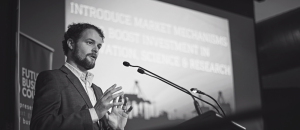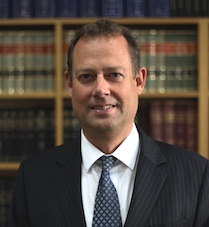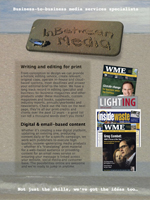Coming together next week, a number of sustainability advocates will be discussing legal avenues that they believe will accelerate more ethical corporate governance in Australia.
The way corporations are managed can have a big impact on the potential for either positive or negative change. This is highlighted by the fact that many corporations have a greater turn over than the GDP of some nations, and three million limited new limited liability companies are registered each year.
The participation of Tom Quinn at the Purpose event in Sydney, follows from the release of a legal opinion by the organisation he heads, The Future Business Council.
Commissioned in partnership with the Centre for Policy Development, the legal opinion, confirmed that the bar for directors is rising as the links between social and environmental factors and financial risks and performance come into sharp focus.
The opinion of authors Noel Hutley SC and Sebastian Hartford-Davis is that directors who fail to consider the impact of foreseeable climate change risks on their business properly could be held personally liable for breaching the duty of due care and diligence they owe to their companies.
Mr Quinn says there are two distinct types of risks that companies should be considering: the physical impact of climate change such as extreme weather events and flooding; and the transition to a low carbon economy.
While many boards and directors are already actively considering these issues, many face challenges in terms of managing and disclosing sustainability-related risks at the level of sophistication increasingly being demanded by regulators and markets.
In Mr Hutley’s view, “it is likely to be only a matter of time before we see litigation against a director who has failed to perceive, disclose or take steps in relation to a foreseeable climate-related risk that can be demonstrated to have caused harm to a company”.
A high-level business roundtable convened by the Future Business Council to discuss these issues, suggested that greater investment could be made in risk analysis and integrated reporting; as well as a focus on technical support and consolidating measurement of sustainability-related risk. It also suggested stepping up concerted public advocacy on these issues on chairs, directors and regulators.
Mr Quinn said his participation at Purpose is designed to inform those company directors that may not have considered these risks previously:
“Belief in climate change is irrelevant, the courts will have no time for that. What they will have time for is whether a company has considered the risks, has it disclosed the risks to stakeholders and has it acted on those risks.
“This is where the first law suits will come from,” said Mr Quinn.
In fact, there is currently a class action against Exxon Mobil in the United States on the grounds that, during a period in 2016, the company’s statements in regard to the value of its oil and gas reserves were misleading because they didn’t take into account the risks of climate change.
“This is about getting companies to ask ‘what are the risks if we don’t act’,” said Mr Quinn, “That’s something companies don’t take as seriously as they should”.
While there may have been a slowing in action on carbon at the corporate level in recent years, Mr Quinn said “We’ve identified in the fiduciary angle that this is a way to position the issue where companies can take advantage of the opportunities… and we can actively invest in the next generation of businesses that will succeed”.
Increased scrutiny of short-termism
Cathedral Thinking is another ‘values’ based business theme being explored at Purpose, by lawyer and mediator Chris Halburd among others. He has returned to Australia after three years in Brussels where he was a key player in an initiative while working with purpose driven law firm Frank Bold.
‘The Purpose of the Corporation Project’ is a strategic and open-source platform for leading thinkers and organisations interested in promoting the long-term health and sustainability of companies.
While not strictly a project adopting Cathedral Thinking, Mr Halburd said: “It depends on what you think Cathedral Thinking is about but if it’s about long-termism then it is related”.
“The project does a lot of work in partnership with people, we just create the space, we don’t own the space or the ideas,” said Mr Halburd.
“I think from a practical point of view we have managed to help academics that did have something important to say to put it in a way that business people and policy makers could understand.”
After the GFC, the contemporary model of corporate governance became increasingly criticised for forcing corporations to focus on short-term profit maximisation for shareholders at the expense of long term strategising, innovation and sustainability. Mr Halburd says this has a range of unintended consequences: inappropriate focus on the short-term, excessive executive pay, underestimation of systemic risks.
This desire for a more long-term mindset was most notably advocated in the 2012 Kay Review, part of the UK government’s response to the GFC. Its author John Kay spoke at the launch of the latest report from ‘The Purpose of the Corporation Project’.
The report doesn’t propose a definition of the purpose of the corporation but seeks to foster the development of a wide-ranging debate on the nature and consequences of contemporary corporate governance from multiple angles including: company law; economics; accounting; management; and politics.
Many of the findings of the report and global business roundtable series include existing solutions such as wider adoption of integrated reporting; requirements to assess principal ESG and systemic risks; and mandate reporting on long-term value creation.
“Everyone is hoping to come up with the grand new paradigm. If shareholder primacy has been it, then what is the new paradigm, and no one seems to be coming up with that. So, the in meantime we have to look at a series of iterations that would improve on what we have at the moment, for example Benefit Corporation,” said Mr Halburd.
Although, he admits that the Benefit Corporation is perhaps not that revolutionary or even that different from the original corporation that needed to obtain a Royal Charter in order to operate.
“They had to offer something of interest to the Crown,” he said, “Today that would mean having a social purpose. They didn’t have limited liability so those involved were more focused on not causing harm to third parties”.
Just as there is no legal obstacle to Australian directors taking into account climate changes and other sustainability risks, there are a number of widely held beliefs about corporations and company law that are legally incorrect.
“For example, contrary to popular belief there simply is no general duty for directors to maximise profits for shareholders. Shareholders do not own corporations or the assets of corporations,” said Mr Halburd.
He said of the project, what started out as a search for “something to address adverse human rights impacts” has grown quickly into a much bigger discussion about changing the purpose of the corporation to “have less negative externalities of all kinds”.
For more information visit: http://purpose.do/sydney/




Comments are closed.